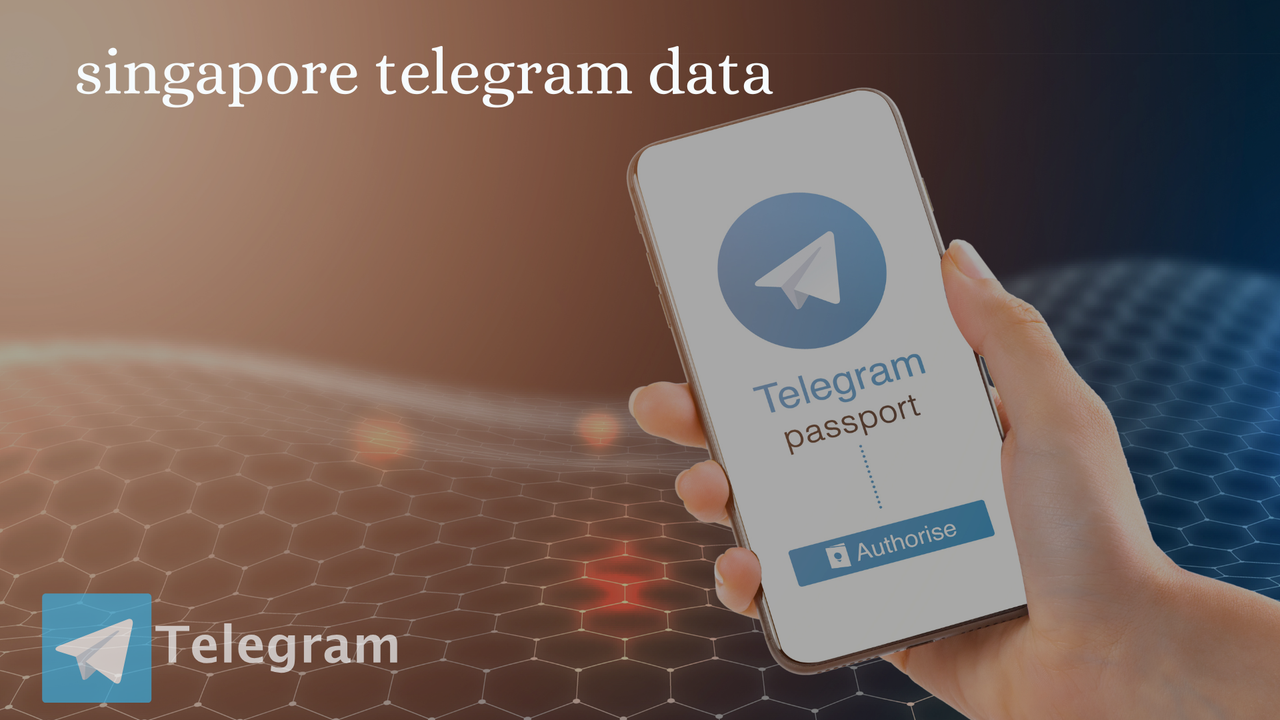Telegram’s Popularity in Singapore
Telegram has emerged as one of the leading messaging apps in Singapore, rivaling WhatsApp, Facebook Messenger, and WeChat. Its ability to host groups of up to 200,000 members, manage large channels, and share multimedia files seamlessly makes it highly appealing to businesses, students, and grassroots organizations. The COVID-19 pandemic further accelerated its adoption, as citizens relied on it for official updates, education, and community support.
Beyond convenience, Singaporeans value Telegram’s privacy-first reputation. Yet, the very features that make it attractive—encrypted chats, anonymity options, and vast group capacities—also create avenues for misuse. This tension explains why Singapore telegram data is now the subject of widespread debate in both public and government circles.
Data Management Structure of Telegram
Telegram operates on a dual system for managing data: cloud chats and secret chats. Cloud chats are encrypted and stored on Telegram’s distributed global servers, enabling synchronization across devices. Secret chats, on the other hand, employ true end-to-end encryption, meaning that only the sender and receiver can access the content.
For Singapore users, this distinction is crucial. While cloud chats provide unmatched convenience, they also involve a level of trust in Telegram’s infrastructure. Secret chats deliver stronger privacy but require users to actively choose them. As such, how Singapore telegram data is handled depends heavily on user awareness and individual choices.
Singapore’s Privacy and Data Protection Laws
Singapore has one of the most comprehensive data privacy regimes in Asia, anchored by the Personal Data Protection Act (PDPA). The PDPA regulates the collection, use, and disclosure of personal data, imposing singapore telegram data strict obligations on organizations while giving individuals rights over their information. For companies operating in Singapore, compliance with the PDPA is mandatory.
Telegram, as an international platform, exists in a legal gray zone. While it must respect PDPA provisions when serving Singapore users, enforcement is complicated because its servers and operations are largely based abroad. This raises ongoing concerns about whether Singapore telegram data is adequately safeguarded under local laws.
Telegram’s Privacy Policies and Cooperation Practices
Telegram markets itself as a privacy-first platform, highlighting its policy of not selling user data or using it for targeted advertising. It also emphasizes that it shares limited data with authorities, and only in cases of terrorism or serious crime. Typically, such cooperation involves metadata such as IP addresses and phone numbers, rather than message content.
For Singapore, where security and law enforcement are high priorities, this creates a nuanced challenge. Citizens benefit from Telegram’s strong privacy stance, but exceptions to its policies leave open questions. Whether Singapore telegram data is fully protected or subject to selective disclosure remains a matter of user concern.

Implications for Singapore Users and Businesses
The growing use of Telegram in Singapore has wide-ranging implications. For individuals, it offers a secure and flexible communication tool. For businesses, it provides an innovative channel for customer engagement, marketing, and service delivery. Community groups and political organizations also use it to spread information and organize activities efficiently.
Yet risks accompany these opportunities. Public groups can expose users to scams, phishing attempts, and the rapid spread of misinformation. Businesses must be mindful of PDPA compliance when using Telegram to handle customer data. Thus, Singapore telegram data is not only a personal concern but also a corporate and societal issue.
Best Practices for Data Security on Telegram
Singaporeans can take several proactive steps to protect themselves on Telegram. Enabling two-step verification adds an essential layer of account security. Using secret chats for sensitive conversations ensures true end-to-end encryption. Adjusting privacy settings to control who can view phone numbers, photos, or status information can significantly reduce risks.
In addition, users should avoid joining suspicious groups, refrain from downloading unverified files, and limit the personal details they share publicly. Businesses and organizations can develop internal guidelines to ensure staff use Telegram responsibly. Collectively, these practices help ensure that Singapore telegram data is managed safely and effectively.
Government Oversight and Cybersecurity in Singapore
The Singapore government, through agencies like the Personal Data Protection Commission (PDPC) and the Cyber Security Agency (CSA), plays a key role in shaping the nation’s digital environment. The PDPC enforces the PDPA, investigates complaints, and ensures compliance, while the CSA addresses broader cybersecurity challenges.
However, since Telegram is headquartered outside of Singapore, oversight has practical limitations. Greater cooperation between international regulators and platforms is needed to fill enforcement gaps. Public education initiatives can also empower users to better protect themselves. Together, these efforts strengthen how Singapore telegram data is protected across the ecosystem.
The Future of Telegram in Singapore
Telegram’s importance in Singapore is likely to grow as digital communication continues to expand in both professional and social contexts. Businesses, schools, and civic organizations will increasingly rely on it. Yet, with rising reliance comes pressure for stronger accountability regarding data handling and privacy protections.
Future developments may include tighter regulations, more robust enforcement of the PDPA on international platforms, and heightened user expectations for transparency. The trajectory of Singapore telegram data is thus tied to balancing privacy rights, business opportunities, and national security needs.
Conclusion: Managing Singapore Telegram Data Is a Shared Duty
In conclusion, Singapore telegram data is an issue that highlights the delicate balance between technology, privacy, and governance. Telegram offers citizens and organizations powerful tools for communication and collaboration, but the risks of scams, misuse, and weak cross-border enforcement cannot be ignored.
By adopting secure practices, adhering to PDPA compliance, and fostering collaboration between users, businesses, regulators, and Telegram itself, Singapore can create a safer and more trustworthy digital ecosystem. The way Singapore telegram data is managed in the coming years will determine whether the platform becomes a long-term asset or a vulnerability in the nation’s digital future.